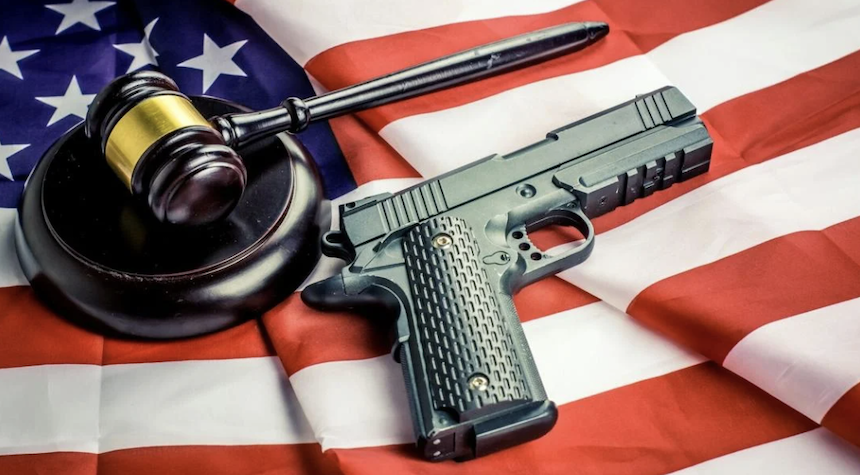The Department of Justice, in a noteworthy development, is suggesting the reinstatement of firearm ownership rights to individuals convicted of specific crimes, provided they are not deemed “likely to act in a manner dangerous to public safety.”
If approved, this modification in regulations would reinstate Second Amendment rights to certain Americans with criminal records. This development follows earlier reports that President Donald Trump had addressed this issue with an executive order in early February, instructing his administration to scrutinize all actions that might impact Americans’ gun rights.
The new DOJ recommendation would influence individuals who have been indicted on charges of a felony or misdemeanor domestic violence, and are currently barred from owning guns. This rule alteration would permit some of these individuals to petition the government, asserting their non-threat status to society or any specific individual.

The proposal delineates that those attempting to regain their rights could still be barred. According to reliable sources, violent felons, registered sex offenders, and illegal immigrants, barring exceptional circumstances, will continue to be presumptively ineligible for relief.
We should note that the administration’s plan introduces a succinct framework to allow petitioning for the restoration of gun rights and a streamlined decision-making process. The Department of Justice has acknowledged that although it’s currently possible to petition for the restoration of gun ownership rights, the existing procedure is burdensome and seldom yields a positive result for the petitioner.
U.S. pardon attorney Edward R. Martin Jr. stated, “My team and I are developing a 925(c) program landing page with a sophisticated, user-friendly platform for Americans petitioning for the return of their gun rights, which will make the process easier for them.” Individuals interested in immediately petitioning to restore their right to bear arms have been counselled to wait until the new system is in place. In the meantime, they are free to provide their comments on the proposal.
The significance of this should not be overlooked. This raises important questions about the future of gun ownership rights in America.

